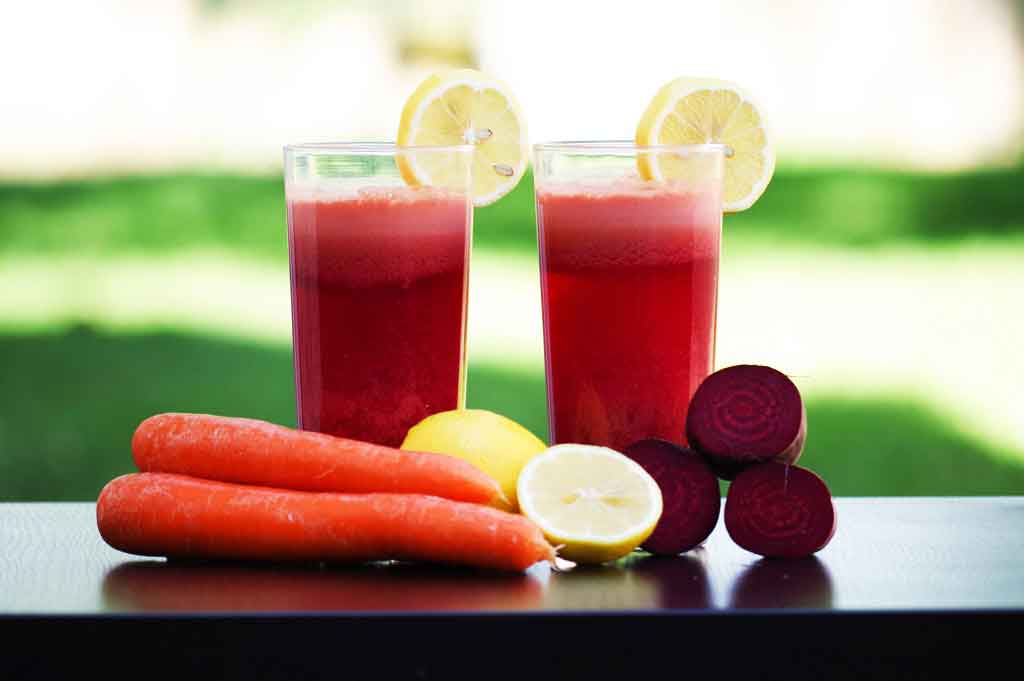Beetroot juice 'boosts stamina'

“Beetroot juice boosts stamina by making muscles more fuel-efficient,” according to the Daily Mail. The study behind this claim set out to test the theory that
“Beetroot juice boosts stamina by making muscles more fuel-efficient,” according to the Daily Mail.
The study behind this claim set out to test the theory that beetroot juice, a rich source of nitrates, can increase muscle stamina. It found that seven volunteers who drank half a litre of beetroot juice each day for a week doubled the amount of nitrate in their blood. When tested on an exercise bike, the rate at which their muscles used up energy and oxygen was found to be slowed.
Problematically, because of its small size and the short-term physiological measurements that were taken, this study is not strong evidence that beetroot juice can increase stamina. More research is needed.
Where did the story come from?
The study was carried out by researchers from the School of Sport and Health Sciences at the University of Exeter, and the Peninsula Medical School. No sources of funding are reported. The study was published in draft in the peer-reviewed_ Journal of Applied Physiology._
What kind of research was this?
The purpose of this study was to investigate further how a short-term diet of nitrate might result in muscles using less oxygen during exercise. The researchers had looked at this effect in previous studies and noted that people fed these diets seemed to have an improved tolerance of high-intensity exercise.
The researchers set up the study as a randomised crossover trial, an appropriate design for testing this sort of theory. The researchers used concentrations and volumes of chemicals designed to maximise the effect of nitrate on muscles. No side effects were reported except for the red colouration of urine (beeturia). Whether or not beetroot juice can be used as a natural nitrate supplement, and whether it is of benefit to athletes needs further testing.
What did the research involve?
This was a randomised, double-blind crossover study, in which seven male volunteers (aged 19-38 years) were asked to drink 500mls a day, for six days, of either a commercially available organic beetroot juice or a low-calorie blackcurrant juice cordial. The beetroot juice contained 5.1mmol of nitrate (NO3), while the control drink had negligible nitrate content.
None of the subjects were smokers or used dietary supplements. They were not told the true theory that was being tested, but that the aim was to compare the effect of two commercially available beverages on exercise.
The volunteers came to the laboratory on seven occasions over four weeks. On the first visit, blood samples were taken for tests of plasma nitrite (NO2) and blood pressure was measured. After initial testing, the participants were randomly allocated to either beetroot juice or blackcurrant juice. Following the first experiment, the groups were swapped around so that everyone was tested with each drink, in a random order. There was a 10-day wash-out period between each drink. On the last three days of each drinking period, subjects were asked to complete a series of low-intensity and high-intensity ‘step’ exercise tests to determine their response to exercise.
Before each test, subjects were asked to avoid coffee for six hours and alcohol for 24 hours. They were asked not to eat foods rich in nitrates for the duration of the study.
The subjects were tested at the same time of day with two different tests:
- A test of metabolism used in sports science called 31P-magnetic resonance spectroscopy (31P MRS). This is a special form of magnetic resonance imaging in which the concentrations of chemicals in the body, such as the phosphates involved in energy metabolism in muscles, can be directly measured. The researchers were interested in measuring phosphocreatine, also known as creatine phosphate (Pcr), as this provides a rapidly mobilised reserve of high-energy phosphates released during exercise.
- A test of oxygen uptake in the lungs (vO2) as a response to exercise. For this test, the participants cycled on an exercise bike while attached to a device that measured their CO2 output and oxygen intake.
What were the basic results?
The NO3 supplementation was well tolerated with no side effects. However, subjects did report beeturia and red stools consistent with previous studies.
On the last three days of the test periods (days four to six) the beetroot juice groups had a significant increase in plasma nitrite (a result of the breakdown of nitrate by the body).
There was difference in the results when low- and high-intensity exercise were compared. During exercise, phosphocreatine is used as an energy source, lowering its concentration in the muscles, and vO2 is increased as the lungs take in more oxygen. During low-intensity exercise, the beetroot juice slowed this reduction in muscle phosphocreatine concentration and the increase in O2. However, during high-intensity exercise, though this effect was still evident, the difference was not large enough to be statistically significant. After drinking beetroot juice, the participants could cycle for longer before feeling exhausted.
How did the researchers interpret the results?
The researchers conclude that the lower O2 use during exercise in the dietary NO3 supplementation group appears to be due to a reduced use of adenosine triphosphate (ATP), a fuel used in muscles. They observe that this could mean that high-intensity exercise could be tolerated for a longer period.
Conclusion
This small experimental study appears to be well designed and reported. There are a few general points to note about this type of study:
- Although randomisation occurred, in a crossover study all participants receive both active beetroot juice and the placebo. This means that only the order in which the drinks were received was randomised.
- The fact that beetroot juice and blackcurrant juice taste different and that beetroot juice makes the urine go red means that the participants would have been aware of which drink they were taking and, therefore, were not really effectively blinded to the treatment. They could also have been aware of the supposed properties of beetroot juice.
- The effects in women were not tested and the athleticism of the volunteers is not reported.
- Beetroot juice is a rich source of nitrates, but there may be other differences between beetroot juice and low calorie blackcurrant cordial, such as sugar levels, which may affect how the body responds to exercise.
Overall, this physiological study in a small group of volunteers will be of interest to sports scientists working in the area. However, this is a small study and, until further research is carried out in larger groups, it does not provide a reason to start drinking beetroot juice to increase stamina.







 Subscribe
Subscribe Ask the doctor
Ask the doctor Rate this article
Rate this article Find products
Find products